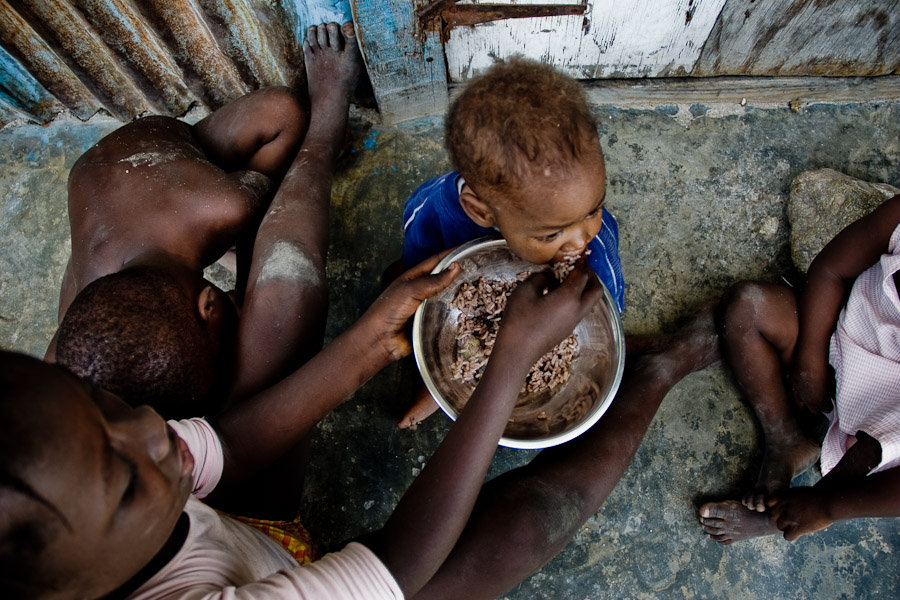A review of the following article:
Glover, Jonathan . "An Inconvenient Moral Truth." The Philosopher's
Magazine. Winter 2006: 49-53. Print.
 In
this article, Glover poses an interesting question that may or may not come
to mind for some people. The question of whether or not we have a moral
obligation to help people, more specifically help the poor, is raised. A
concept of comparable moral significance suggests that if it is within our
power to prevent something bad and we are not sacrificing anything of
comparable moral significance, then we do have somewhat of a moral obligation
to do it. However, the question of what is of comparable moral significance
becomes an issue. So what does this mean
for people in poverty? Do we have a moral obligation to help them? Glover
contends that much of poverty stems from the exploitation of poorer countries,
the way stronger governments negotiate with weaker governments, and policies in
place that prevent industries in the underdeveloped and developing world from
competing with our own. The reality is that much of the misery in this world is
preventable and caused by the economic conditions from which our country and
countries with more wealth benefit; this is an injustice.
In
this article, Glover poses an interesting question that may or may not come
to mind for some people. The question of whether or not we have a moral
obligation to help people, more specifically help the poor, is raised. A
concept of comparable moral significance suggests that if it is within our
power to prevent something bad and we are not sacrificing anything of
comparable moral significance, then we do have somewhat of a moral obligation
to do it. However, the question of what is of comparable moral significance
becomes an issue. So what does this mean
for people in poverty? Do we have a moral obligation to help them? Glover
contends that much of poverty stems from the exploitation of poorer countries,
the way stronger governments negotiate with weaker governments, and policies in
place that prevent industries in the underdeveloped and developing world from
competing with our own. The reality is that much of the misery in this world is
preventable and caused by the economic conditions from which our country and
countries with more wealth benefit; this is an injustice.
The concept of exploitation and how
it is connected with moral obligation raises a very important question. If
poorer countries are being exploited and we as a society are essentially
keeping them in poverty, what can we do to help them? Is it even possible to
help such a large population of people? As Young (in Justice and Politics of Difference) describes in her chapters
about the distributive paradigm and the five faces of oppression, much of
injustice is rooted in the structure of institutions. This is touched upon by
Glover as well, as he describes how society should work together and remove
ourselves from the instinctive path of problem solving. Many people think that
giving money to charity is the way to tackle poverty and help. Yet so many
people complain that they cannot help impoverished people because they have
their own families they need to support. This way of thinking makes us blind to
other strategies though. Why sacrifice the money and resources to a cause when
it is rarely effective and not tackling the root of the problem? A more logical
way of thinking would be to each contribute by using our skills and intelligence
to match what we like doing with what may help the problem. If someone is good
at campaigning and critical thinking, then they may be able to fight poverty by
proposing solutions and getting them implemented.
The solution of thinking, participating,
and utilizing one’s own skill set, is like that proposed by Young (p.37). Being
a doer instead of just someone who recognizes injustice and does nothing about
it. If we all recognize injustice and say it is not our problem, injustice becomes
self-perpetuating. The exploitation involved in allowing poverty to pervade
society reveals the coercive structure that gives weaker countries very few
options to resist it. Glover introduces the topic of our perceptions of saints
and heroes adopting self-sacrifice and doing things for the public good and
asks if it is absurd to say everyone has a duty to act this way. But when
poverty exists because of injustice we create, haven’t we already put ourselves
in a position where it is our moral obligation to help?
Maybe I am overly ambitious, maybe I
am unrealistic, but I do not think that extreme self-sacrifice is necessarily unrealistic.
No, we cannot all be saints and heroes, but as Glover said, much of the misery
in this world is preventable. I do not understand why so many people resist
helping others because they are a complete stranger. If we do things for the
public good, would that not make the world a better place? And would that not
make one happy to live in it? Glover’s article brought into perspective how my
actions affect others, or do not affect others. I feel as though we as human
beings do not have a duty or should
feel obligated to help others, but that is what is morally right and if we were
in a situation requiring someone to help us out of good moral, we would want
someone to consider helping us because it was the right thing to do. No one has
to be extreme, but I think that Glover makes a good point – if we all put
together our thoughts and ideas and utilized our skills, we would be able to
help more effectively and prevent injustice from pervading our society.
No comments:
Post a Comment